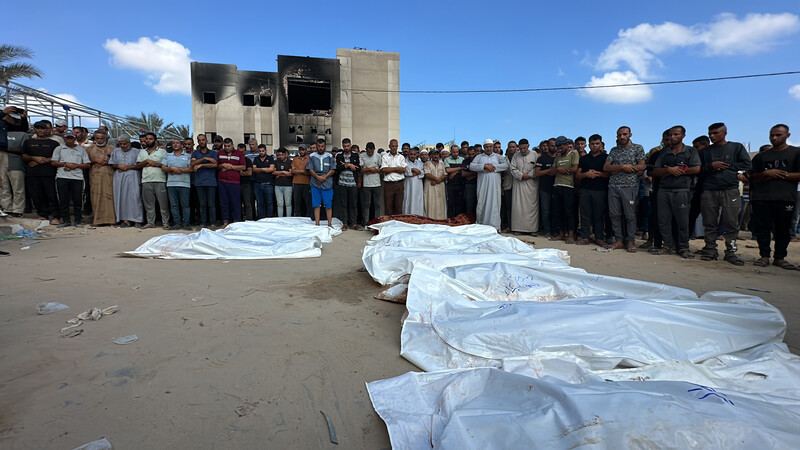The Electronic Intifada 18 September 2024

Relatives mourn the killings of their loved ones in Khan Younis on 24 August. The scale of destruction and the state of some corpses have caused rights groups to call for an investigation into whether Israel is using banned thermal weapons in Gaza.
APA imagesDid Israel kill my friend Bashar Abed al-Wahad along with his family by using banned thermal weapons?
I learned that when a civil defense crew came to find the bodies left under the rubble of the house they shared in Gaza City’s al-Daraj neighborhood which was bombed in August, they didn’t find any human remains.
This suggests Israel might have used special munitions – like thermobaric bombs – that can vaporize human bodies.
In April, the Euro-Mediterranean Human Rights Monitor issued a report calling for a probe into similar atrocities.
“An international committee of experts must be established to look into the weapons Israel has been using as part of its genocide in the Gaza Strip, ongoing since 7 October 2023, including the potential use of bombs that produce such high heat that victims’ bodies evaporate,” the report said.
“A number of the victims killed in these horrifying Israel raids on residential buildings have vanished and may have turned into ashes,” Euro-Med said.
I had known Bashar since 2018 when we met at university. His sense of humor and joy for living were infectious.
Bashar had been planning to complete his higher education abroad when the Israeli military invaded Gaza last October.
Bashar and his family were displaced to the south in the early stages of the genocide, where they stayed for a week before returning north to live in a relative’s house.
Trying to survive
On 8 December 2023, when Israeli ground forces reached Gaza City, the family fled the intense bombardment, seeking shelter at a United Nations Relief and Works Agency school.
They erected a tent in the middle of the campus and stayed there for 40 days without clean water for drinking, flour for bread, gas for cooking or blankets to protect them against the winter cold and rains.
During their time in the shelter, indiscriminate shelling from an Israeli tank killed Bashar’s older brother.
After the Israeli forces pulled out, Bashar’s remaining family moved to Jabaliya camp, where they shared a room with three other families.
Bashar and his family stayed in the camp until the second ground invasion of Jabaliya camp in May forced them to evacuate yet again to al-Daraj neighborhood.
Once there, Bashar began helping extract people who had been trapped under the rubble after Israeli attacks.
In August, a bomb struck the building Bashar, his parents and sister were sharing. It left no trace that they ever existed.
The media have depicted northern Gaza as a much-destroyed area. But too little has been reported about the methods used to kill Bashar and his family and many others.
The Euro-Med Monitor pointed out that thousands “remain missing, either because it was impossible to recover them from under the debris in light of insufficient equipment and technical know-how, or because their bodies were either hidden by the Israeli army or no longer exist.”
Asil Almanssi is a writer based in Gaza.





